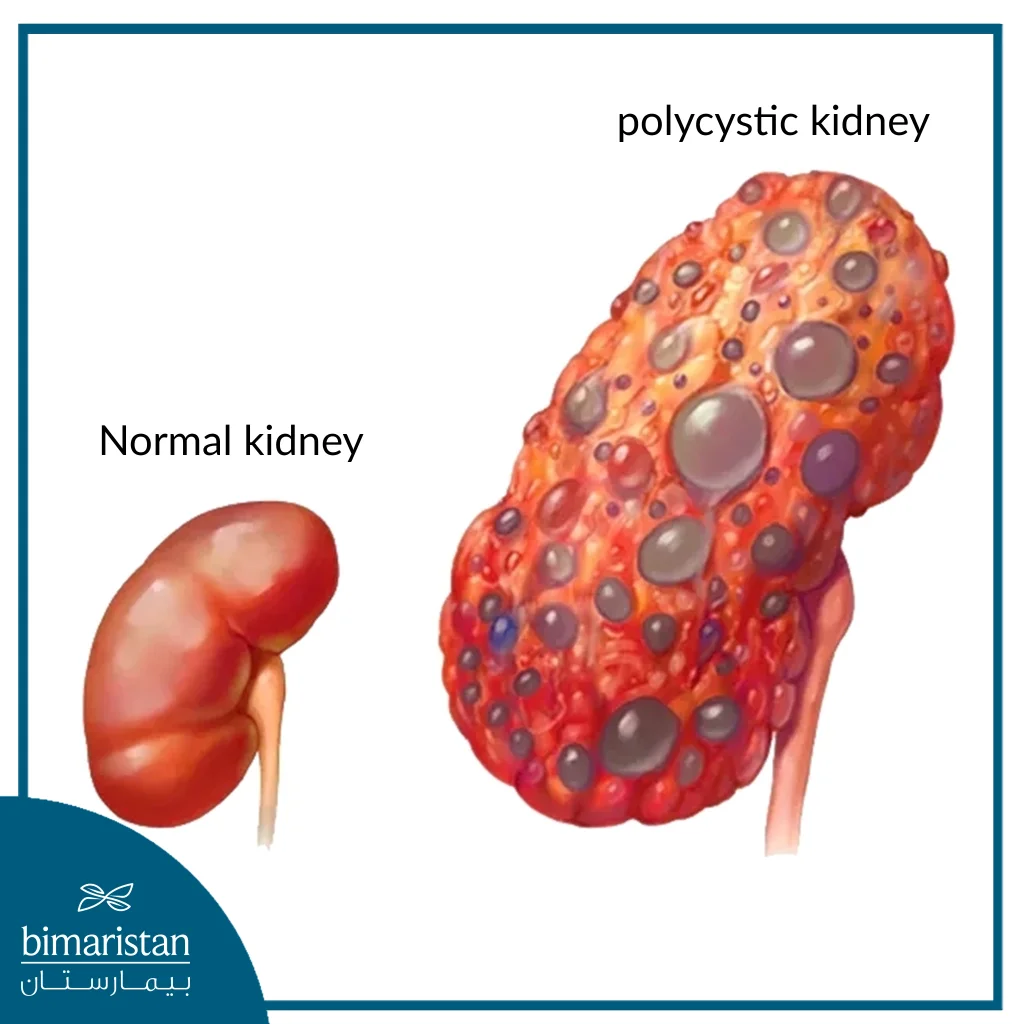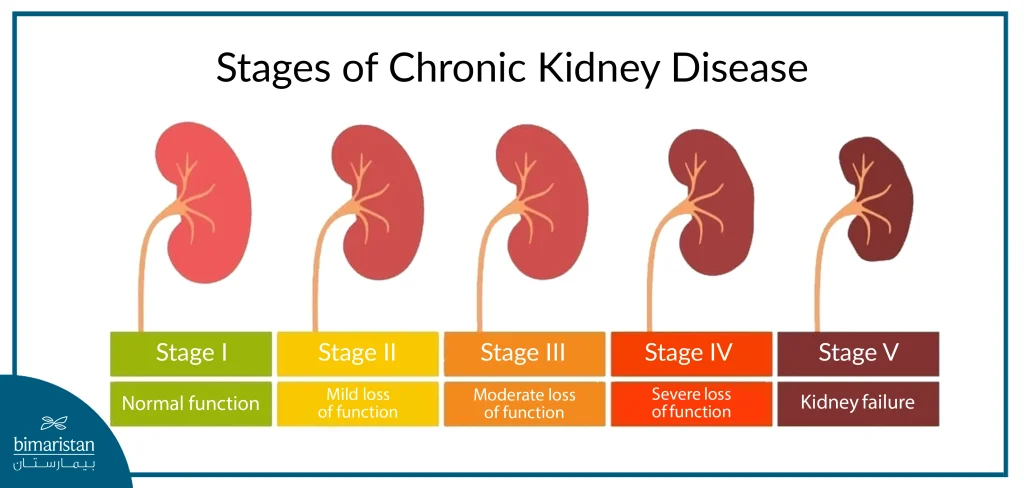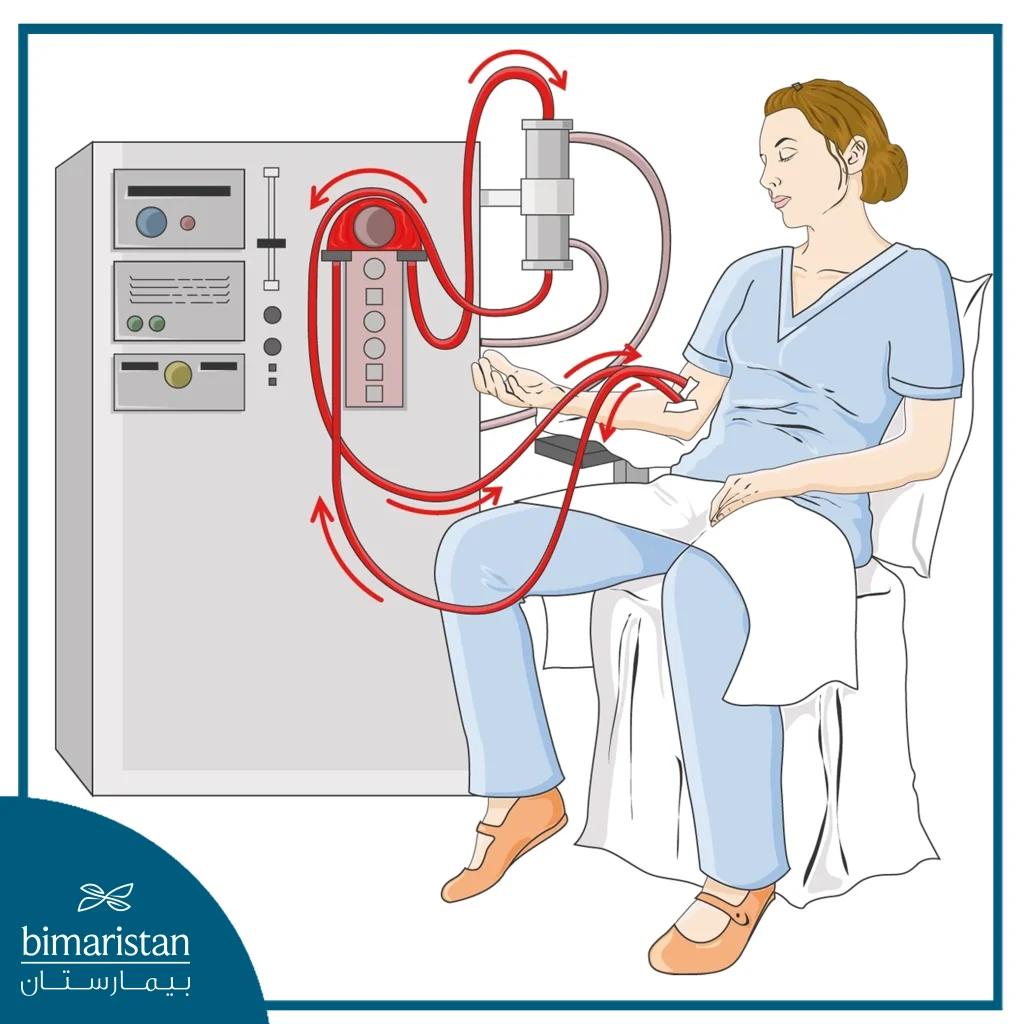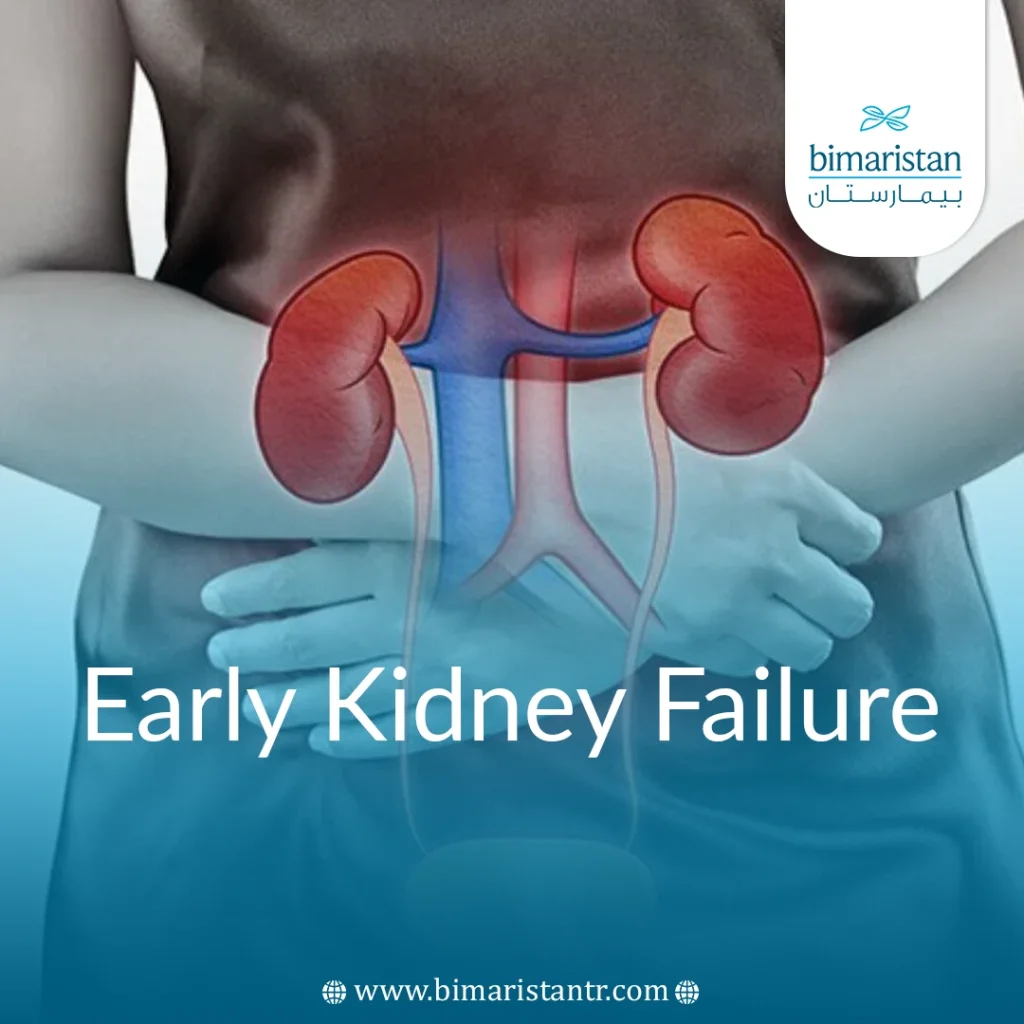ُEarly kidney failure symptoms indicate the need for immediate treatment of kidney disease. Early kidney failure symptoms include constant fatigue and edema in the extremities, and anemia may occur later. Learn about early kidney failure symptoms and its treatment in detail.
Early kidney failure symptoms
A normal person has two kidneys in the lower back on both sides of the spine. The kidneys perform many functions in the human body and are essential for life.
One of the kidneys’ most important functions is filtering the blood and purifying it from waste and toxins. Therefore, in the event of kidney failure, these toxins will accumulate, leading to many serious systemic symptoms that may lead to death.
Renal Failure is divided into two types; (Types of kidney failure) acute kidney failure and chronic kidney failure. Acute kidney failure develops within hours or days, causing rapid deterioration in kidney function.
Chronic kidney failure occurs over years, causing a gradual deterioration in kidney function, so a person may not initially feel any symptoms until they reach a critical point where they lose their kidney.
Causes of kidney failure
There are many causes of kidney failure, but there are generally two main causes of kidney failure:
- Diabetes (uncontrolled high blood sugar, in particular, causes kidney failure due to long-term damage to the kidney).
- Excessive high blood pressure (also uncontrolled and left untreated because high blood pressure affects the kidney vessels).
These two causes are responsible for most cases of kidney failure. Other causes of kidney failure include:
- Polycystic kidney disease
- Chronic heart disease such as congestive heart failure
- Some congenital kidney defects
- Advancing age (over 60 years)
- Some medications: especially those taken without a prescription, which some patients may become addicted to for years and take excessive doses of, such as non-steroidal anti-inflammatory drugs (ibuprofen) or some antibiotics (gentamicin).

There is also another division of causes of kidney failure, which includes:
Pre-renal causes of kidney failure
This is the presence of any abnormality in the blood supply to the kidney through its arteries, such as renal artery blockage due to a clot or atherosclerosis (often acute).
Some heart or liver diseases may be the cause, and allergic shock, severe dehydration, and profuse bleeding also cause this type of kidney failure.
Renal causes of kidney failure
Include kidney tissue diseases, such as some autoimmune diseases that destroy the kidney and lead to kidney failure, such as some complications of systemic lupus erythematosus or nephropathy following streptococcal infection (often chronic).
This type also occurs with glomerulonephritis, scleroderma, heavy metal poisoning such as arsenic and mercury, in addition to medications and alcohol, severe hemolysis as in hemolytic jaundice, and muscle breakdown.
Post-renal causes of kidney failure
It is any obstruction or blockage in the urinary tract from the kidneys to the external environment (ureter, bladder, urethra). The most prominent of these causes are:
- Urinary stones are found in the kidneys, ureters, bladders, and even urethra.
- Neurogenic bladder, especially those that cause urinary retention
- Prostate enlargement in older men or prostate cancer.
- Cervical cancer
- Colon cancer
- Bladder cancer
Early kidney failure symptoms
Including early kidney failure symptoms and symptoms of late kidney failure; early kidney failure symptoms are often not present, and the patient may have kidney failure without feeling it and not noticing the symptoms of kidney failure until after losing a large part of kidney function.
We may see some early kidney failure symptoms in some cases, which include:
- Low urine volume
- Short and difficult breathing in the patient
- Edema in the hands and feet
Symptoms of kidney failure
The kidney has compensatory mechanisms that make the loss of part of its function unnoticeable, so the patient does not feel any of the early kidney failure symptoms, so people who are expected to have kidney failure should be examined.
Symptoms of kidney failure are divided into chronic and acute symptoms according to their speed of development and appearance.
Symptoms of Acute Kidney Disease (AKD)
They are characterized by their rapid onset within hours or days. They may lead to a very rapid deterioration in the patient’s condition due to the failure to filter the blood of toxins and toxic waste. These symptoms include:
- Mental confusion
- Sleepiness
- Seizures
- High blood pressure
Symptoms of Chronic Kidney Disease (CKD)
These symptoms are characterized by their development over a long period and slowly. Some of them may be early symptoms warning of failure or may appear suddenly but based on chronic kidney disease. Symptoms of chronic kidney failure include:
- Foamy urine (containing bubbles and is called proteinuria)
- Anemia (paleness with general fatigue)
- Chest pain
- Nausea and vomiting (vomiting)
- Loss of appetite
- Peripheral edema with swelling in the hands and feet due to water retention
- Shortness of breath
- Muscle spasms
- General weakness and constant fatigue
- High blood pressure
- Disorder In bones and easy fractures
- Itching of the skin (accumulation of waste in the skin of the person instead of excreting it through the kidneys)
- Sleep disturbances such as insomnia or excessive drowsiness
- Constant feeling of fatigue
- Some neurological symptoms
- Difference in the amount of urine according to the stage of the disease (decrease or increase)
Stages of kidney failure
Failure in chronic kidney disease is divided into five stages; kidney failure depends on the severity of the symptoms in the patient or on the measured glomerular filtration rate in the patient (the amount of kidney filtration of substances from the blood, the maximum is 120 and the minimum is 0)
Stage I (1) of Chronic Kidney Failure
Where the kidney filtration is above 90, the disease is in its early stage, and the patient does not show any symptoms warning of failure due to kidney compensation or may have very mild symptoms.
Stage II (2) of Chronic Kidney Failure
The filtration rate drops to 60, and some mild symptoms begin to appear, such as the presence of protein in the urine (foamy urine or urine protein).
Stage III (3) of Chronic Kidney Failure
GFR becomes 30, there is a clear malfunction in the kidney function, and toxins begin to accumulate more in the body due to the chronic disease.
Stage IV (4) of Chronic Kidney Failure
GFR is 15, and the patient loses most of the kidney function.
Stage V (5) of Chronic Kidney Failure
GFR is less than 15, and the patient loses all of the kidney function, and all of the symptoms mentioned above appear (such as vomiting, nausea, and loss of appetite).

Treatment of kidney failure
The treatment of kidney failure depends on the disease that caused it. If kidney failure is caused by a clear and acute disease (such as allergic shock or severe bleeding), treatment restores the kidney’s function, and the failure is temporary.
However, if the cause is a chronic disease such as high blood sugar or blood pressure that has been present for a long time and is not treated, this will lead to cumulative damage to the kidney and may prevent recovery.
In general, chronic kidney failure is an incurable disease, but remaining untreated means death within a few days or weeks. Treatment of kidney failure includes the following:
Preventive treatment
First, the risk factors that cause kidney failure must be controlled by using medications such as blood sugar lowering and blood pressure lowering or by treating autoimmune diseases with immunosuppressants to prevent kidney failure.
Some diuretics may also be used in the early stages. The most important thing in treating kidney failure is controlling the amount of fluid in the body to reduce edema of the hands and feet and concentrating the electrolytes in them, especially potassium, to avoid heart rhythm disturbances.
Dialysis to treat kidney failure
Hemodialysis involves withdrawing blood from the patient’s body through special tubes to enter the dialysis machine, which purifies the blood from toxins and waste. The blood then returns to the body pure. The patient needs approximately 3 to 4 dialysis sessions per week so that his kidney failure does not deteriorate.

Peritoneal dialysis is similar to the previous dialysis, but it depends on injecting fluid into the abdomen and waiting for a certain period of time. Then, we return and withdraw the fluid from the abdomen, thus absorbing the excess waste in the body fluids.
Kidney transplantation
Where the kidney surgeon removes your non-functioning kidney and transplants a kidney from another living donor in its place after conducting tests between the two people in the hospital to achieve compatibility.
A person can live with one kidney normally, so kidney transplantation is resorted to when both kidneys fail. The average life span of an individual undergoing dialysis is between 5 and 10 years (and may reach 30).
The average life span of a person undergoing a kidney transplant is close to 20 years. Turkey has the latest methods and the most skilled doctors to perform kidney transplantation with high success rates, and the latest technologies are also available to perform kidney transplantation using a robot.
Sources:
